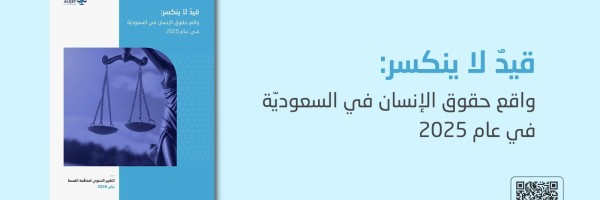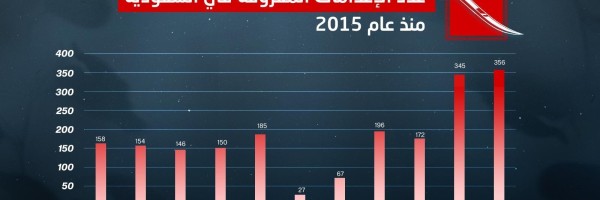At least nine young men are at risk of execution in Saudi Arabia for crimes they allegedly committed as minors, in direct contradiction of official claims to have ended this violation of international human rights law, and amid heightened concerns that there could be a renewed surge in executions now that Ramadan is over. Their sentences all followed grossly unfair trials.
Between July 2022 and March 2023, the Specialised Criminal Court of Appeal upheld death sentences against Jalal al-Labad, Abdullah al-Derazi, Hassan al-Faraj, Youssef al-Manasef and Ali al-Mabiyouq, and the Criminal Court in Tabuk that of Abdullah al-Huwaiti. All six are now at imminent risk of execution, pending final rulings from the Supreme Court. In October 2022, the Specialised Criminal Court also handed down death sentences against Jawad Qureiris and Ali Hassan al-Subaiti that are currently under appeal. Meanwhile, the prosecution is calling for the death penalty against Mahdi al-Mohsen too.
While Abdullah al-Huwaiti was charged for alleged murder and robbery, the other eight have been convicted or face charges under the kingdom’s draconian Counter-Terrorism Law, for a wide range of offences including some that took place when they were under the age of 18. They include acts protected by the rights to freedom of expression, peaceful assembly and association, including participating in protests, attending the funerals of people killed by the security forces, and “seeking to destabilise the social fabric and national cohesion”.
The courts’ rulings have followed grossly unfair trials that failed to meet basic standards of due process, including by denying legal counsel and access to criminal files, and admitting coerced confessions as evidence in court.
“I wasn’t allowed to phone the lawyer and wasn’t allowed to have my legal representative present at the investigation stages and I wasn’t informed of the time or day or dates and this is contrary to the Law of Criminal Procedure.” Ali al-Mabiyouq
“The accused had earlier requested legal assistance to prepare the evidence that would prove he had been placed under duress, consisting of recordings from the interrogation rooms, but his request was not granted by Their Honours the judges hearing the case.” Jalal al-Labad’s lawyer
Following their arrests between 2014 and 2021, several of these young men were subjected to severe physical and psychological torture of various kinds, including beatings, electrocution and death threats. Some were hospitalised as a result and developed health complications. However, the Saudi courts have failed to investigate their complaints regarding this torture, and have instead admitted their coerced confessions as evidence.
“Everything I said was at the dictation of the investigation team and under torture.” Youssef al-Manasef
“And Their Honours will not be unaware that brutally beating the accused with pipes and shoes and cables, banging his head on the table until he passed out, electrocuting him and threatening him with certain death if he did not attest his confession, invalidates the investigation process.” Jalal al-Labad’s lawyer
In 2020, the Saudi authorities purportedly issued a decree ending judges’ discretion to apply the death penalty when sentencing those convicted for offences committed when they were under 18. However, it contained various loopholes such as excluding cases brought under the Counter-Terrorism Law and capital crimes under Sharia law. Saudi Arabia’s official Human Rights Commission has nevertheless repeatedly insisted that “no one in Saudi Arabia will be executed for a crime committed as a minor”, a claim that was already undermined by the controversial execution of Mustafa Hashem al-Darwish on 15 June 2021.
The fact that these nine young men are now also at risk of execution, despite gross flaws in the judicial process and their being underage at the time of their alleged offences, totally contradicts the Saudi authorities’ claims to have reformed the judicial process in relation to the death penalty for juveniles.
Fears for the six at imminent risk are heightened now that Ramadan is over. Before the holy month (22 March - 22 April this year), when executions are traditionally paused, 16 individuals had already been executed in Saudi Arabia in March, and another man was executed on 30 March during the holy month itself. Five executions have already been carried out since Ramadan ended.
ALQST’s Head of Monitoring and Advocacy Lina Alhathloul comments: “These sentences are a grim reminder that despite boasts of reform, Saudi Arabia’s record on the death penalty and respect for global norms is absolutely dire. The international community must wake up to this, and act urgently to save the many lives at stake.”
ALQST calls on the Saudi authorities to review these young men’s trials in line with international standards, investigate the alleged violations of their rights while in detention, and quash the death sentences passed on them. Furthermore, ALQST calls on the Saudi authorities to establish a moratorium on use of the death penalty with the aim of working towards its abolition.




